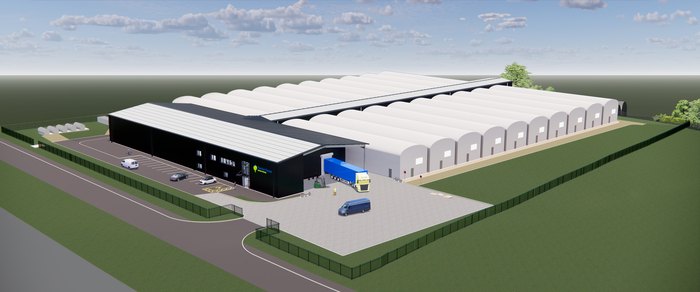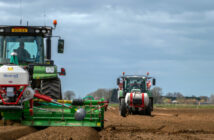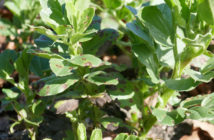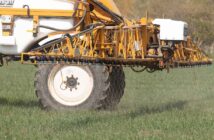A vision to feed Britain in a more resilient and sustainable way lies behind multimillion-pound plans to create the world’s largest vertical farm, which has been launched by green energy expert and Fischer Farms CEO, Tristan Fischer.
Fischer Farms already has one of the UK’s largest vertical farm operations in Lichfield. Here it grows a range of short leaf products via a stacked, biosecure, climate-controlled and fully automated system. It has now unveiled plans for a new £25m plant in Norfolk which is set to become the world’s largest vertical farm and blaze a trail for a scalable and more sustainable food production industry.
6.5 tonnes of lettuce
This second vertical farm will create 25,000 m2 of growing space – enough to supply 6.5 tonnes of leaf salad (rocket, lettuce etc), leafy herbs (basil) and other fresh produce to UK supermarkets every day. The investment will allow Fischer Farms to employ, train and upskill the labour force, ensuring longevity for this sustainable business model.
Fischer Farms has secured backing for the new Norfolk site from Gresham House – an asset management company specialising in investments with a sustainable, positive impact.
He said: “Fischer Farms is revolutionary, the future of farming, fresh food production and food supply chains in this country. Our plans use the very latest vertical farming innovations, pioneering technology and 100% renewable energy to enable us to farm more responsibly, sustainably and more productively in order to feed a growing population. As our production process is strictly controlled, we will also be able to guarantee a consistently higher quality, fresher tasting end product.
Less space
“Vertical farming enables us to be much more productive using less space. We can grow the same amount of food in our 4 acre building that you would take 1,000 acres of conventional British farmland. We will do it without using pesticides, herbicides or insecticides. Our produce will be grown locally in the UK; it will stay fresher for longer with no need to rinse; there are no traceability issues and we will slash food miles with our shorter ‘farm to fork’ times. The volumes grown locally also mean we can produce food at price points comparable to field-grown crops too and provide retailers with greater reliability of supply throughout the year, reducing the reliance on food imports and creating the potential for more local jobs.”
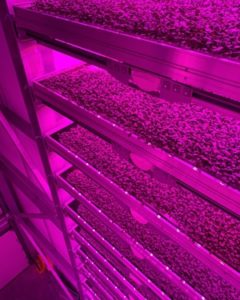 Fischer Farms uses data analytics tools to optimise its fully automated growing, harvesting and reseeding systems. The business also boasts enviable green credentials. It uses energy-efficient LED lighting which allows the lights to be very close to the tops of plants due to their low heat production. This in turn enables tightly stacked layers. There is no impact on the surrounding countryside from topsoil erosion or chemical run-off associated with traditional farms while the solar-powered facilities ensure a low carbon footprint.
Fischer Farms uses data analytics tools to optimise its fully automated growing, harvesting and reseeding systems. The business also boasts enviable green credentials. It uses energy-efficient LED lighting which allows the lights to be very close to the tops of plants due to their low heat production. This in turn enables tightly stacked layers. There is no impact on the surrounding countryside from topsoil erosion or chemical run-off associated with traditional farms while the solar-powered facilities ensure a low carbon footprint.
Over the next 10-15 years, Fischer Farms plans to scale up its operation and reduce its cost base to enable it to grow soya beans, rice and wheat in significant volumes and at price points that compare favourably to global commodity prices.
Mr Fischler added: “Food supply chains and our planet are both under enormous strain. The Fischer Farms vision is to change the world by working with Nature 24 hours a day, every day of the year, to produce the freshest, safest and highest quality British-grown produce all year round in the most environmentally sustainable way.”

